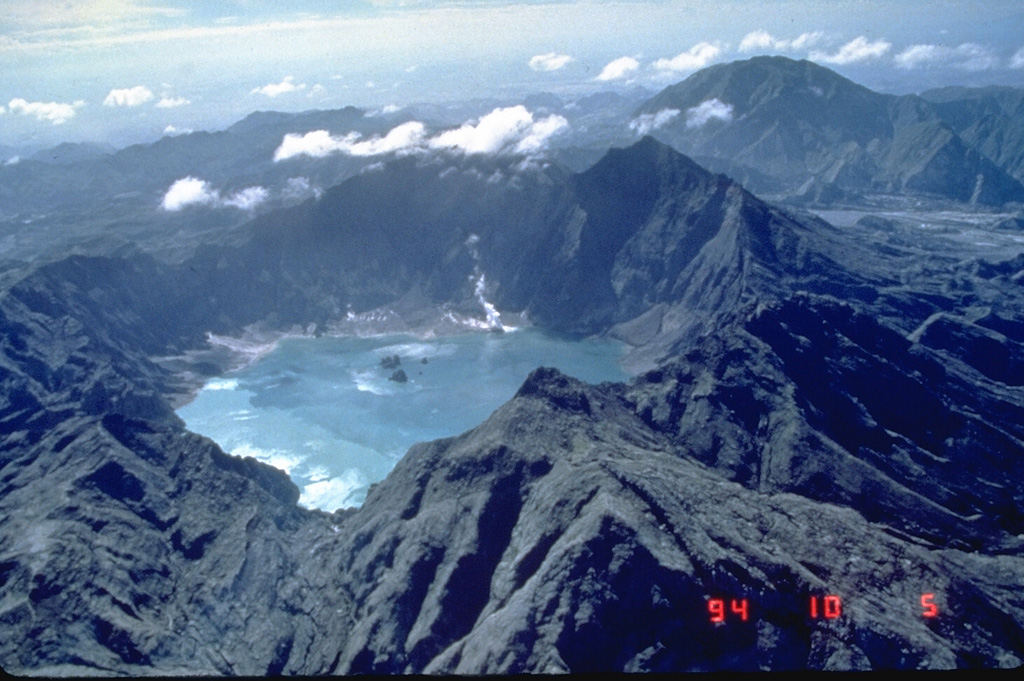Presenter: Dr. Megan Newcombe

Presentation Title: "Belly of the Beast: What Happens Beneath Volcanoes to Make Them Erupt?"
Event time and place: September 30, 2024 in Ledo Pizza at 4509 Knox Rd. College Park, MD
This is a bit different from my previous two excursions. Rather than a field trip to a research center or a lab I attended a presentation on how volcanoes erupted and the challenges that come with trying to predict a volcano eruption. This presentation was done by Dr. Megan Newcombe where she and her team have headed out to various volcanoes out in the world and have studied the rock and magma formations at these locations to get a better understanding of how volcanoes erupt and to see if there is a better way to determine when a volcano will erupt and possibly give people enough time to evacuate the area if needed.
In terms of how volcanoes erupt the simplest example would be a shaken up soda bottle. The inside of a volcano contains not only magma but other materials like water, carbon dioxide, hydrogen, etc. These materials are called volatiles and are the reason why volcanoes erupt. Volatiles in the volcano will turn into a gaseous state and building pressure. The pressure eventually gets to the point where it starts moving magma upwards much like how the carbonation of a soda builds pressure when you shake it and remove the cap from the bottle.
As for determining when a volcano will erupt, it is a very difficult task to do. There are a variety of ways to check on how a volcano is doing but none of these methods gives us a surefire way of determining when it will erupt. Unlike other natural disasters like tsunamis and tornadoes, there is usually an indicator as to when they usually occur. Volcanoes don’t have a consistent indicator however. An example of this is the seismic activity of the volcano. When someone surveys a volcano they might get readings that show high seismic activity under the volcano. One might think that the volcano that they're surveying will erupt at any moment but the truth is that the volcano might not erupt in the next decade despite the high activity at that moment.
I found this presentation to be very interesting especially since it concerns volcanoes. I had very little prior knowledge to how volcanoes actually erupted other than things you would see in tv shows and movies. The best presentations keep people engaged and get them to ask questions about the subject. Although I don’t normally ask questions myself I found myself asking a question out of curiosity which is rare for me to do.
One of the big factors on why I found this presentation interesting is because it explains how something happens in our world. Dr. Newcombe did a wonderful job explaining how volcanoes erupt and present it in a way that is digestible to someone that might not even have much knowledge on volcanoes in general. For example, I always thought that volcanoes erupted when the magma underneath starts to overflow which pushes it upwards towards an opening on the surface. Now I know that eruptions are caused by many different types of volatiles turning into gas and creating pressure which causes magma to flow upwards. The most surprising thing I learned from this is that water is the main volatile in volcanoes that causes eruptions.
Volcanoes are very interesting and attending this presentation has further piqued my interest in them. While I was able to ask one question at the end of the presentation I had to leave right after since it was getting pretty late in the evening. If I had the chance to talk to Dr. Newcombe again I definitely would. If anything I might end up going to another presentation similar to this in the future if I have the time. Learning about stuff like this, whether it's something new or building off something I already know, is always a joy to me and I believe that everyone should try and attend one of these presentations. After all, our time in this world is limited so we might as well make the best of it and try to enjoy whatever we might come across.


